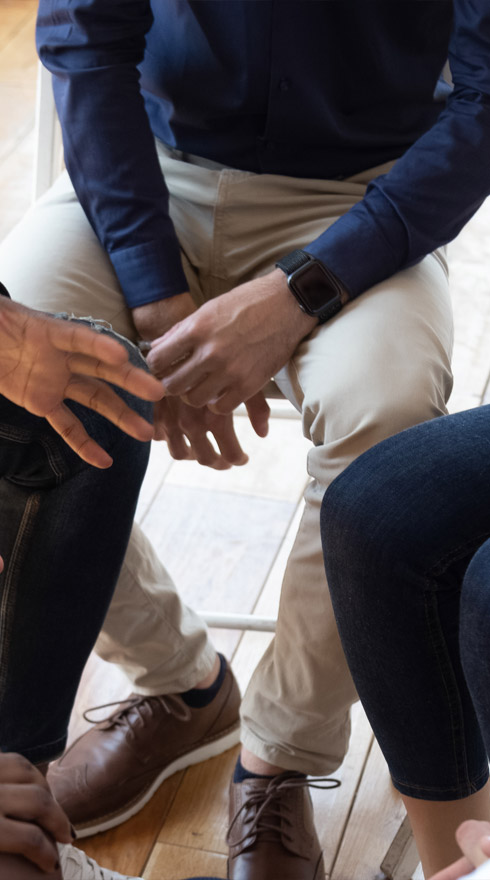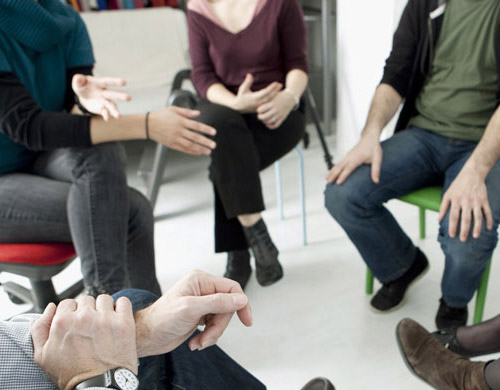If you or someone you care about is struggling with drug or alcohol use disorder, it may seem like everything is hopeless and finding it difficult to know where to go. Fortunately long term recovery can be acquired if you adopt proven rehabilitation methods because addiction is treatable.
Our Guide will detail how integrating different rehabilitation approaches can assist with a sober future for you or a loved one.
What is Addiction Rehab (Rehabilitation)?
Addiction ‘rehab’ is a holistic treatment package that utilizes both the therapeutic and medical interventions to treat both legal and illegal substance dependencies. Addiction rehab offers higher chances of long term success when it is customized to the unique needs of the client and incorporates medically-managed detoxification, residential or outpatient programs, and relapse prevention techniques such as aftercare.

Facts & Statistics about Addiction in Butte
Prevalence of Substance Use Disorder, by Drug Type
(IN THOUSANDS)
- 2,7578.5%Any Substance
- 2,0886.4%Alcohol
- 1,0683.3%Ilicit Drugs
- 2060.6%Pain Medication
Drug- and Alcohol-Induced Deaths by Age Group, California, 2016
- Alcohol-Induced
- Drug-Induced
- 18 to 250.5
- 9.6
- 26 to 354.3
- 13.9
- 36 to 6424.2
- 22.9
- 65+23.7
- 9.4
Drug Use, by Selected Type and Age Group California, 2015 to 2016
- 12 to 17
- 18 to 25
- 26+
- Marijuana*13.2%
- 34.0%
- 13.5%
- Misuse of Pain Medications3.5%
- 8.0%
- 4.3%
- Cocaine0.8%
- 7.2%
- 1.8%
- Heroin0%
- 0.4%
- 0.2%
What are the treatment options available in Butte?
Integrated rehab is typically the most effective manner in which to deal with the root causes of drug and alcohol use disorders.
Utilizing coping strategies to treat the root causes of your substance dependency is just as vital as treating the symptoms of addiction.

Private Residential Programs
When you live within the facility where you are receiving addiction treatment, you are in a residential program. Its key benefit is that you will continuously receive holistic treatment and support day by day. When you stay at a rehab facility you will be away from most of the triggers in your home environment that may influence your substance dependency.
If you stay in a safe and secure environment you can protect yourself against relapse and increase the odds of finishing your treatment program. Those who are struggling with dual diagnosis, co-occurring disorders or severe substance dependencies are strongly advised to enroll for an inpatient rehab program. An inpatient treatment program will support you in getting sober, but note that maintaining sobriety requires persistent effort as the first few months of recovery are usually challenging. After you complete your residential addiction treatment program your priority will be your transition to greater independence as you focus on what you want from your future.
Do You Need Help?
We work together towards sobriety.

Sober Living Programs
Sober living programs are structured with the required support to help recovering individuals achieve what they want from new life in recovery. They support you through:
- A house manager who visits you regularly
- Supporting you on how to behave in recovery
- Fostering important friendships with others in recovery who can relate to your experiences
Outpatient Programs
By taking part in an outpatient program you have a lot more flexibility, because you can visit the rehabilitation facility for treatment weekly and continue work or family commitments.
Outpatient programs typically provide you with:
- Drug abuse education
- Counseling and therapy including Cognitive Behavioral Therapy or group sessions – Your personal needs usaully determine the length of your outpatient program, which could extend from three months to over year.
Detox Only Programs
The benefits of a medically-assisted detox are many, because you can rid alcohol or drugs from your system with safety in mind and put an end to your physical dependence. Symptoms of withdrawal usually begin during the detox phase and your body has to learn to function without substances it was physically dependent on.
After this you will continue forward in your recovery journey, as you start to address the underlying causes for your dependency, helping you manage and avoid it in the early stages of recovery and beyond. A number of drugs cause temporary cravings and withdrawal symptoms after you have completed drug or alcohol detox. Your odds of relapse are reduced as you build on the important skills necessary to cope with your new life.
Paying for Private Treatment
Private rehab needs to be paid out of pocket or claimed directly through your insurance. Many insurance companies will cover at least some of the costs of treatment, including medical detox, a rehab program, and any medicines you may require. Your provider along with their terms will dictate the amount of cover you can claim for.
We always suggest that you double check on the amount covered for treatment prior to enrolling for treatment. Check out our Verify Your Insurance page – https://www.unitedrecoveryca.com/verify-your-insurance/ – to learn about the cover you qualify for. Clients are liable for the cost of treatment if they do not claim from their insurance policy. Some treatment centers will offer payment plans to clients who are unable to pay the whole cost of treatment.
State Funded Programs
State-funded rehabilitation programs are recommended to people who are ready to address a drug or alcohol addiction but have limited resources to enroll in a program. These programs make use of government funds from state budgets, Medicaid and federal government to provide addiction recovery by offering:
- Safe & confidential medical detox
- Addiction therapy which includes extended care
If you are not supported by private health insurance or you live in a low income household, you can apply for a state-funded rehab program. You will need to provide:
- Proof of low income
- Proof of where you live
- Your medical records regarding your addiction
- Proof you have the legal right to live in the US
You can learn more about the application process here: https://www.grants.gov/
You can also download this file – https://www.samhsa.gov/sites/default/files/single-state-agencies-directory-08232019.pdf – for your state agency’s direct contact details.

The following state-funded addiction rehab programs are available in Butte:
Butte County Dept of Behavioral Health BCDBH Oroville Youth SAPT
2430 Bird Street, Oroville, CA 95965
530-538-7277
http://www.buttecounty.net/behavioralhealth/Butte County Dept of Behavioral Health Oroville Stepping Stones
2167 Montgomery Street, Oroville, CA 95966
530-538-7277
http://www.buttecounty.net/behavioralhealth/Butte County Dept of Behavioral Health Adult Treatment Court Chico
560 Cohasset Road,Suite 165 , Chico, CA 95926
530-879-3950
http://www.buttecounty.net/behavioralhealth/
Maintaining Addiction Recovery in Butte
Remaining active in addiction recovery can be hard once you finish your treatment programme. You had the benefits of professional support in a controlled environment at the rehab center. After leaving the rehab center you may encounter unanticipated challenges that you are not prepared for. Clients who had severe dependencies find long term recovery more difficult when they leave rehab if they do not have a social support structure. Guidance and aftercare support is integral in the early stages of recovery to help prevent relapse.
The following AA/NA meetings are available in Butte:
AA - Oroville Meetings
Men’s Closed Meeting:
Nazarene Church – 2238 Monte Vista Ave, Oroville, CA 95966
Saturday: 9:00am
aabutte-glenn.orgHPONA Group (Higher Powered Oroville)
Open, Rotating Format, Wheelchair and Smoke Break:
1365 Feather River Boulevard, Oroville, CA, 95965-4508
Tuesday: 12:00 pm – 1:00 pm
http://greaterbuttena.org/meetings/HPONA Group (Higher Powered Oroville)
Open, Rotating Format, Wheelchair and Smoke Break:
1365 Feather River Boulevard, Oroville, CA, 95965-4508
Tuesday: 6:00 pm – 7:30 pm
http://greaterbuttena.org/meetings/
Aftercare & Alumni Programs
Aftercare programs are an extension of rehab once you leave the rehab center. By participating in extended support, you can reduce the risk of relapse which hurts as many as 60% of clients who have recently finished treatment. It is an essential service provided by most treatment centres. Once you get close to the end of your rehab program, you will consider the treatment services most beneficial to your needs long-term, and an aftercare package will be implemented to help you sustain it.

After completing your rehab treatment program you will become eligible to join an alumni community program so you can stay close to staff and ex-clients. With the support from this network you will have access to fun events and receive support and advice from other former clients who are in recovery as well. We encourage you to consider supporting other former clients who are active in your network if you want to.
Support Groups (Fellowship Meetings)
With the help of support group meetings you can create a support structure that is important to your long-term sobriety. To maintain addiction recovery, can benefit from long-term recovery support if you join groups like Narcotics Anonymous or Alcoholics Anonymous by attending their 12-step meetings. You will become empowered from other people’s experiences and share your own at support group meetings.
Many individuals in recovery attend local meetings to assist them in their recovery journey. Support groups provide them with vital tools to maintain sobriety, allowing them to take responsibility for their life.
Support for Families & Children Affected by Addiction

Addiction impacts everyone in a household to different extents. The individual with the dependency needs help, but other members of the family need support and guidance too. Family support groups provide two important benefits: you can help yourself and the person overcoming substance dependence.
Your family can benefit from support groups including:
- Parents of Addicted Loved Ones
- SMART Recovery Family & Friends
- NAMI Family Support Groups
- Al-Anon
- Families Anonymous
- Alateen
- Nar-Anon









